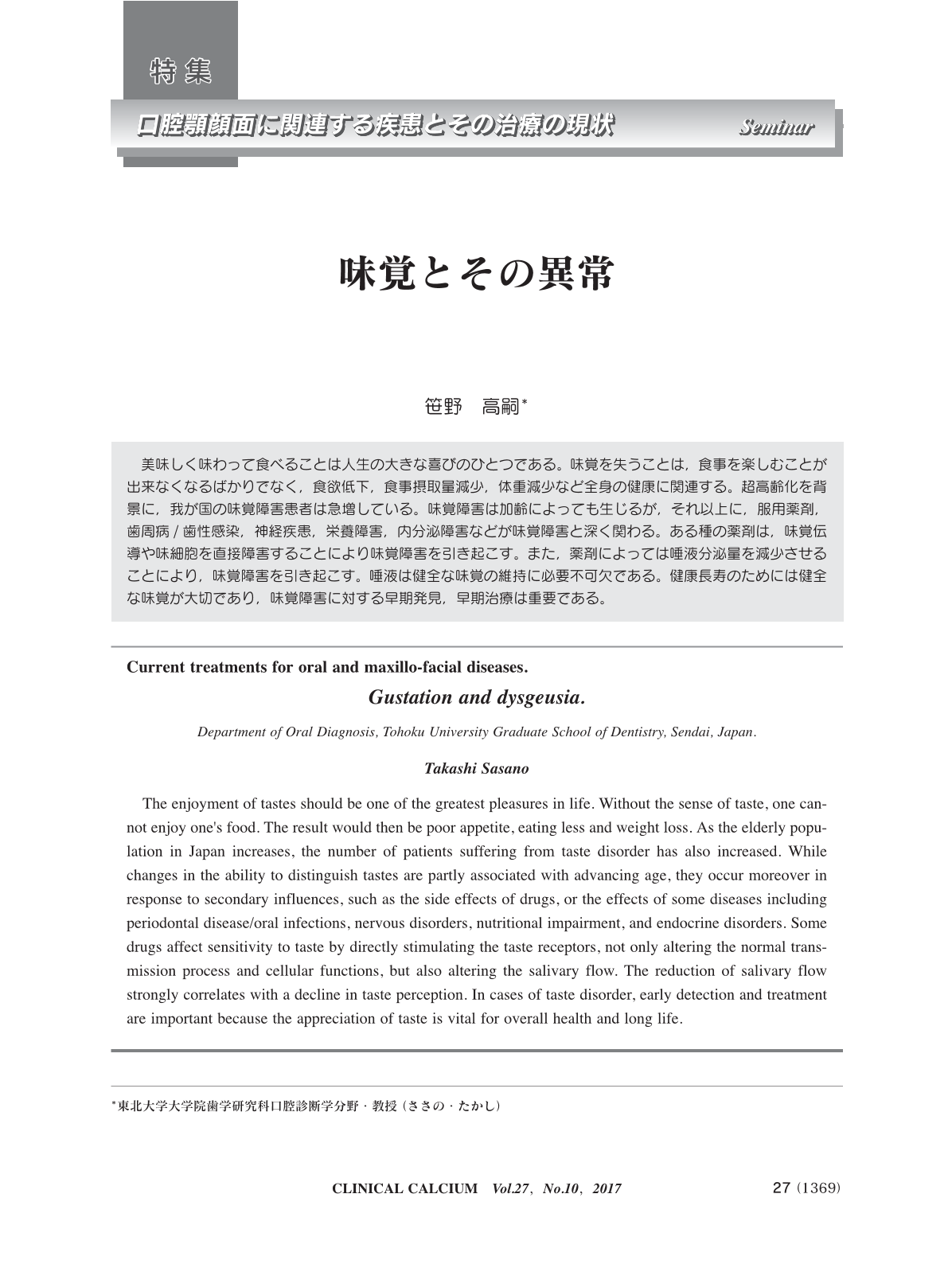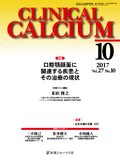Japanese
English
- 有料閲覧
- Abstract 文献概要
- 1ページ目 Look Inside
- 参考文献 Reference
美味しく味わって食べることは人生の大きな喜びのひとつである。味覚を失うことは,食事を楽しむことが出来なくなるばかりでなく,食欲低下,食事摂取量減少,体重減少など全身の健康に関連する。超高齢化を背景に,我が国の味覚障害患者は急増している。味覚障害は加齢によっても生じるが,それ以上に,服用薬剤,歯周病/歯性感染,神経疾患,栄養障害,内分泌障害などが味覚障害と深く関わる。ある種の薬剤は,味覚伝導や味細胞を直接障害することにより味覚障害を引き起こす。また,薬剤によっては唾液分泌量を減少させることにより,味覚障害を引き起こす。唾液は健全な味覚の維持に必要不可欠である。健康長寿のためには健全な味覚が大切であり,味覚障害に対する早期発見,早期治療は重要である。
The enjoyment of tastes should be one of the greatest pleasures in life. Without the sense of taste, one cannot enjoy one's food. The result would then be poor appetite, eating less and weight loss. As the elderly population in Japan increases, the number of patients suffering from taste disorder has also increased. While changes in the ability to distinguish tastes are partly associated with advancing age, they occur moreover in response to secondary influences, such as the side effects of drugs, or the effects of some diseases including periodontal disease/oral infections, nervous disorders, nutritional impairment, and endocrine disorders. Some drugs affect sensitivity to taste by directly stimulating the taste receptors, not only altering the normal transmission process and cellular functions, but also altering the salivary flow. The reduction of salivary flow strongly correlates with a decline in taste perception. In cases of taste disorder, early detection and treatment are important because the appreciation of taste is vital for overall health and long life.



